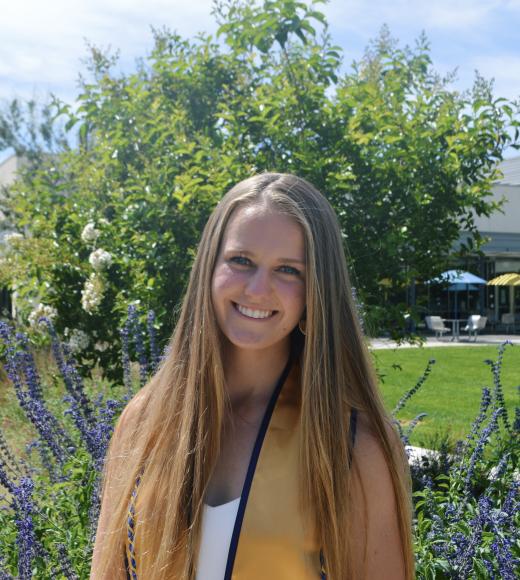
Position Title
MS Student
- Horticulture & Agronomy
- Co-advised with Dr. Mark Lundy
Project
Further development of a nitrogen nutrition index for small grains using remote sensing data in order to make timely decisions on efficient nitrogen fertilization. A nitrogen nutrition index is a tool used in crop production to estimate plant nutrition status throughout a growth cycle. By determining an nitrogen nutrition index, growers can make timely decisions about when and how much to fertilize to maximize grain yield and protein content, while minimizing nitrogen loss and its ensuing environmental effects. This project is led by Dr. Mark Lundy.
Background
Maya graduated from UC Davis with a degree in Plant Sciences and a minor in Professional Writing. She began her college education as a journalism and environmental science double major, and she continues to be involved in science communications efforts. During her undergrad, Maya worked with the small grains organic breeding program through the Student Farm and then in Mark Lundy’s Grain Cropping Systems lab. She also worked for the California Wheat Commission, creating educational content throughout the first year of the pandemic. After graduating from UC Davis, Maya worked for UCANR with the UCCE Santa Clara County office, coordinating a composting education program and working with residents, city and county officials, and volunteers to educate the public on the importance of compost for long-term soil, environmental, and community health. She is now joining the Horticulture & Agronomy program with co-advisors Mark Lundy and Cameron Pittelkow.
Research Interests
I’m particularly interested in where soil, plant, and human health intersect, especially how efficient water and nutrient management can improve long-term soil health, increase plant nutrition, and reduce human health risks. Most importantly, I want to determine the best management strategies that are economically viable for growers so that widespread adoption is possible. I am also passionate about science communications and education, making the complexities of research easily accessible for all backgrounds and expressing the importance of accurate and holistic coverage of the food and agriculture industries to the larger global community.